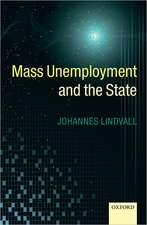Tourism: Politics and Public Sector Management
Autor James Elliotten Limba Engleză Hardback – 7 dec 2016
Using case studies from the UK, Australia and the Third World this wide ranging book covers: policy-making and planning; local governments; airlines and airports; and environmental control and sustainable development. Detailed information boxes and excerpts of official documents illustrate government management of the tourism system and provide critieria for evaluation
| Toate formatele și edițiile | Preț | Express |
|---|---|---|
| Paperback (1) | 447.51 lei 6-8 săpt. | |
| Taylor & Francis – 10 iul 1997 | 447.51 lei 6-8 săpt. | |
| Hardback (1) | 764.20 lei 6-8 săpt. | |
| Taylor & Francis – 7 dec 2016 | 764.20 lei 6-8 săpt. |
Preț: 764.20 lei
Preț vechi: 1239.39 lei
-38% Nou
Puncte Express: 1146
Preț estimativ în valută:
146.28€ • 158.94$ • 122.95£
146.28€ • 158.94$ • 122.95£
Carte tipărită la comandă
Livrare economică 21 aprilie-05 mai
Preluare comenzi: 021 569.72.76
Specificații
ISBN-13: 9781138150737
ISBN-10: 1138150738
Pagini: 296
Dimensiuni: 138 x 216 mm
Greutate: 0.45 kg
Ediția:1
Editura: Taylor & Francis
Colecția Routledge
Locul publicării:Oxford, United Kingdom
ISBN-10: 1138150738
Pagini: 296
Dimensiuni: 138 x 216 mm
Greutate: 0.45 kg
Ediția:1
Editura: Taylor & Francis
Colecția Routledge
Locul publicării:Oxford, United Kingdom
Public țintă
UndergraduateCuprins
Series editor's preface -- List of illustrations -- Preface -- Acknowledgements Acronyms and abbreviations -- 1 Introduction -- The framework of why, who, how and what Why governments are involved in tourism -- Who is involved in tourism management? -- How managers manage -- What results? practice and performance -- A comparative approach -- Five countries -- Summary -- Suggested reading -- 2 Why tourism? -- Definitions -- Historical reasons for government involvement in tourism -- Economic reasons for government involvement in tourism -- Summary -- Suggested reading -- 3 Public sector management and tourism -- Why: political environment and principles -- Who: multiplicity and diversity -- How: formal, informal and changes -- Summary -- Suggested reading -- 4 Management from the centre: formulation -- Why: responsibilities, ideology and objectives -- Who: leaders, ministries and organisations -- How: process and initiatives, formal and informal -- What results? practice and performance, United Kingdom -- Summary -- Suggested reading -- 5 Management from the centre: implementation -- Why: implementation and difficulties -- Who: federal, state and statutory organisations -- How: power, finance, functions, problems and planning -- What results? Thailand -- Summary -- Suggested reading -- 6 Management at the local level -- Why: representation, responsibilities, ideology and objectives -- Who: representatives, managers and industry -- How: leadership, community, power and principles -- What results? England, Australia, Thailand -- Summary -- Suggested reading -- 7 Public management and the private sector -- Why: responsibility, mutual importance -- Who: the industry, government business enterprises -- How: politics, freedom, dependency, regional boards -- What results? air travel, incentive travel -- Summary -- Suggested reading -- 8 Management of tourism control -- Why control? principles -- Who is involved? -- How to control: formal and informal -- What results? Vietnam, environment -- Summary -- Suggested reading -- 9 Conclusions ... and the future? -- Principles and practice -- How managers manage -- The results -- Practice -- Performance -- The future of tourism -- The future of the PSM of tourism -- Bibliography -- Index -- Authors cited.
Notă biografică
James Elliott is a Senior Lecturer in Public Administration at the University of Queensland, Australia.
Recenzii
'A welcome addition to the literature on tourism ... of value both to tourism students who wish to study government and to politics specialists who wish to learn more about tourism ... a well-written and relevant text.' - Environment and Planning C: Government and Policy
Descriere
James Elliot examines the impact of tourism on developed and developing countries and the ways in which governments have managed this diverse and volatile industry. The issues are explored using a range of case studies from around the world.
















